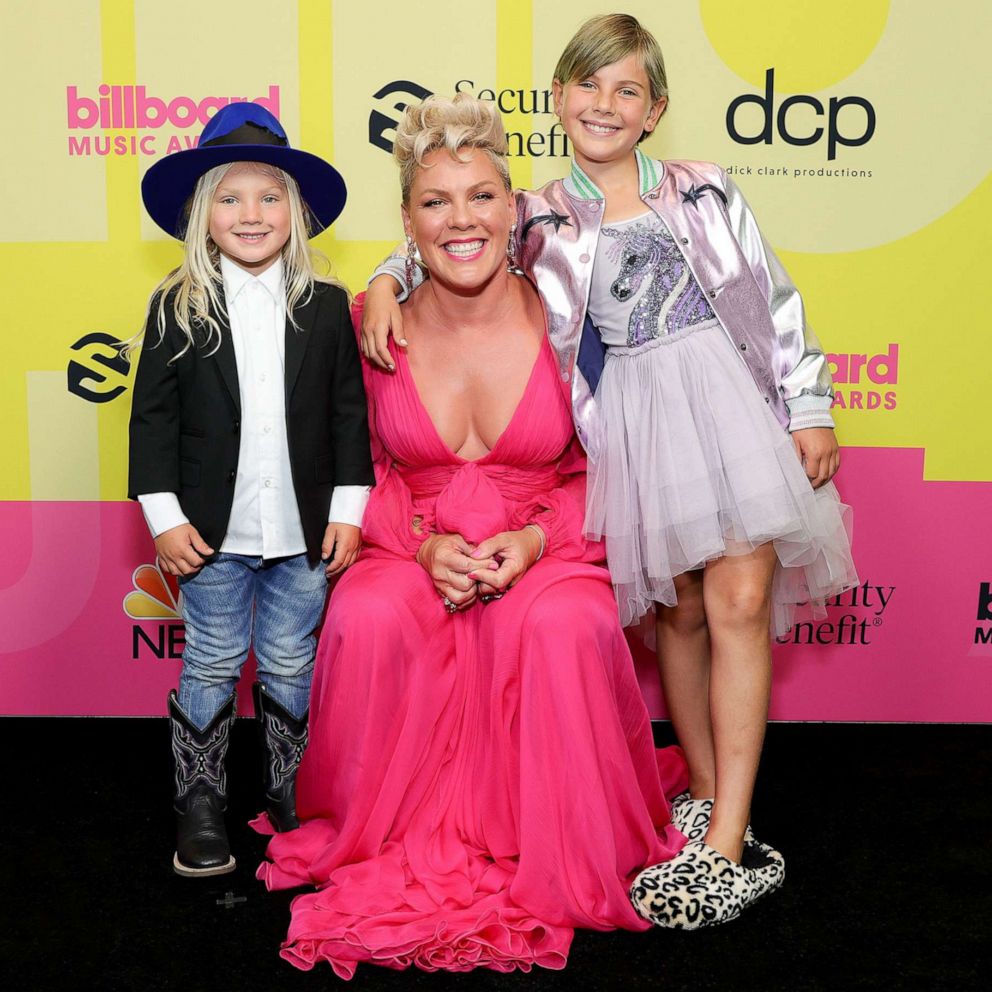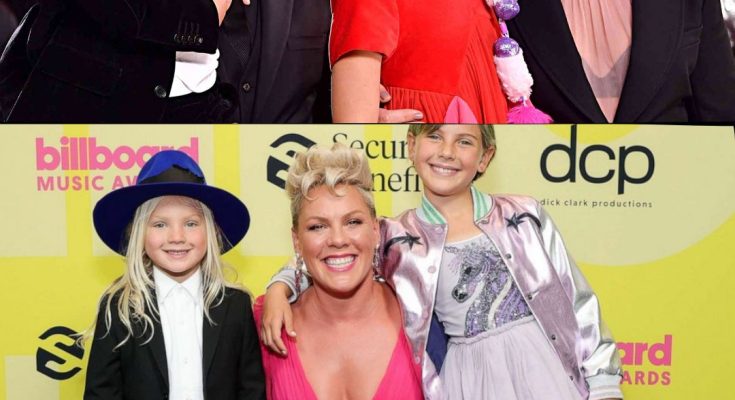In 2017, a quiet storm was brewing online—one that targeted a child too young to understand hate. A photo had surfaced of P!nk’s then one-year-old son, Jameson, wearing a dress at home. It was a sweet moment captured by his mom, a celebration of childhood freedom. But on social media, that innocence was quickly swallowed by harsh comments and ridicule.
For most celebrities, this would have been the end of the story. A scandal. A controversy. A quiet PR cleanup behind closed doors.
But not for P!nk.
She turned the moment into a revolution—one that took center stage at the MTV Video Music Awards, and one that parents across the world still remember today.
From Online Hate to National Stage
P!nk has always been a force. She’s broken rules, defied industry expectations, and redefined what it means to be a woman in music. But nothing prepared the world for what she’d do when the judgment turned toward her child.
Days before the VMAs, tabloids and online threads began circulating the photo with captions like: “Why is she letting her son wear a dress?” and “Poor kid, he’ll be confused.” For any mother, this would cut deep. But for P!nk, it struck a chord from her own childhood—where self-expression was often met with control, and conformity was king.
So she did what artists do: she turned pain into performance.
A Moment That Shook the Room
At the 2017 MTV VMAs, P!nk arrived not in a glittering gown, but in a sharply tailored black tuxedo. Her date? Little Jameson, in a flowy silver tunic—not quite a dress, but enough to spark curiosity. The cameras caught it. The whispers began. But the real moment came onstage.
Accepting the Video Vanguard Award, P!nk took the mic and told the story of a recent conversation with her older daughter, Willow, who had said: “Mama, I’m the ugliest girl I know. I look like a boy with long hair.”
The crowd fell silent.
P!nk didn’t flinch. She went on to explain how she had created a slideshow for Willow, filled with androgynous icons—Michael Jackson, David Bowie, Prince, Freddie Mercury, Janis Joplin—and told her daughter, “Do you see these artists? They’re beautiful and bold and unapologetically themselves. They didn’t change to fit the mold. They changed the mold.”
But what the cameras didn’t show—what didn’t make it into every soundbite—was the quiet moment that followed, when she looked down at Jameson and said softly:
“And my son? He gets to wear whatever he wants. He gets to dance, cry, wear pink, climb trees. He gets to just be—and that’s beautiful.”
The crowd erupted. The applause went on for nearly two minutes. Some cheered. Some cried. But no one forgot.
More Than a Statement—A Stand
It wasn’t just about one outfit. It wasn’t even about gender. It was about reclaiming freedom—especially for the next generation.
In interviews following the speech, P!nk clarified: “I don’t label my children. I raise them to feel safe in their skin. If my son wants to wear sparkles, he wears sparkles. If my daughter wants to shave her head, go for it. What matters is their heart, not their style.”
The VMAs became more than an awards night. They became a parenting manifesto, wrapped in a pop anthem and delivered by a rock star in a tux.

The Impact Still Echoes
After the speech, hashtags like #LetThemBe and #ParentLikePink trended across platforms. Parents around the world shared photos of their kids defying stereotypes—daughters in superhero costumes, sons in fairy wings—with the simple caption: “Thank you, P!nk.”
Psychologists, activists, and educators praised her message. Even celebrities like Ellen DeGeneres and Dwayne “The Rock” Johnson reposted parts of her speech with support.
And while the haters still exist, they were drowned out that night—not by anger, but by truth delivered through love.
A Legacy for Her Kids—and Ours
Years later, that moment is still cited in conversations about parenting, gender, and freedom. P!nk didn’t just protect her son—she elevated him. And in doing so, she reminded millions of parents: your child isn’t here to make the world comfortable. They’re here to be themselves.
And if that self shows up in a dress?
Let them shine.



